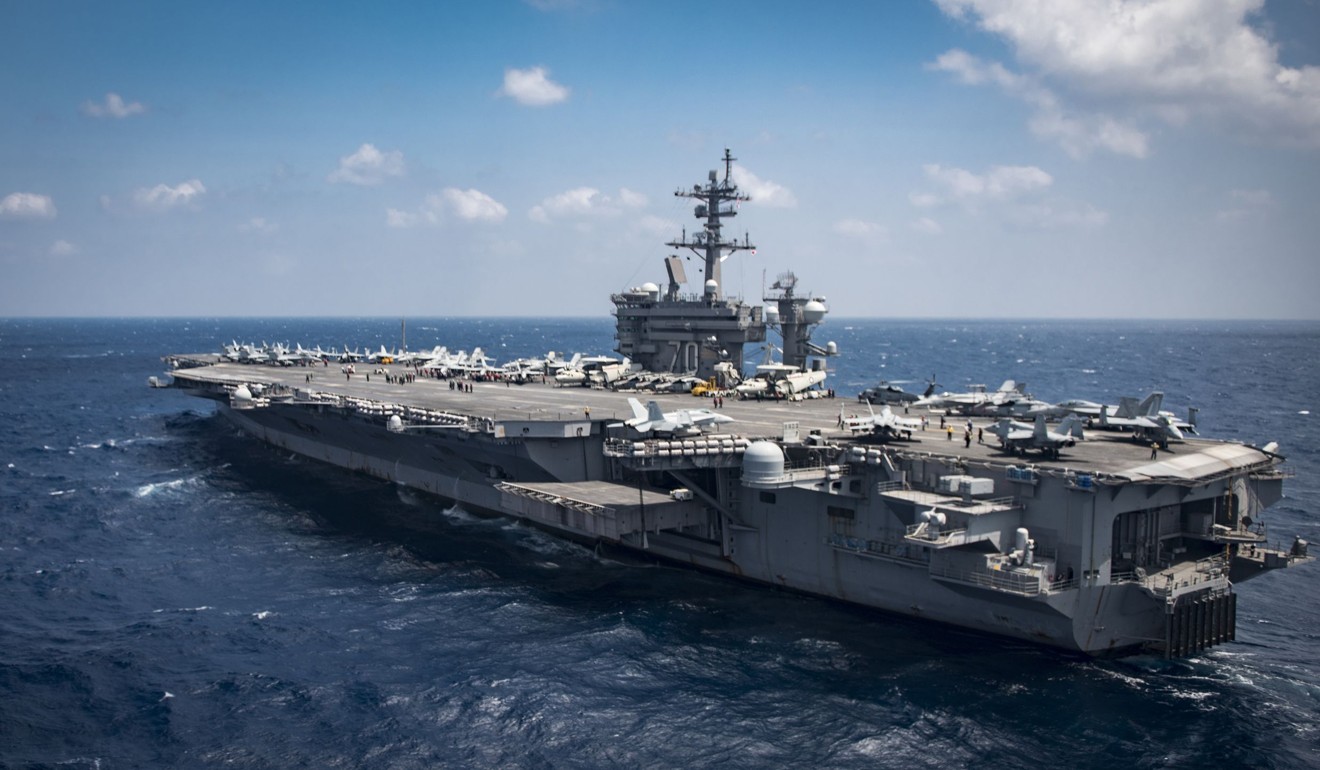
United States ‘won’t give in to China’ on Taiwan or South China Sea
- US diplomat says Beijing must take much of blame for complicating key issues between the two countries
Washington wants to maintain high-level diplomatic engagement with Beijing but won’t give in to its demands over the South China Sea and Taiwan, according to a senior US diplomat.
The comments came after Chinese President Xi Jinping and US Vice-President Mike Pence traded barbs over trade practices at the Apec summit in Papua New Guinea, where the bloc failed for the first time to produce a joint statement.
In Hong Kong on Monday, Patrick Murphy, from the US State Department’s bureau of East Asian and Pacific affairs, said the United States had kept up high-level diplomatic engagement with China in both bilateral and multilateral dialogues despite the trade war between the two countries.
Murphy, one of the senior diplomats accompanying Pence in his Asia tour last week, said the South China Sea and Taiwan issues were the most challenging problems holding back China-US ties, but Beijing should bear the key responsibility for complicating and deepening the seriousness of the two issues.
Apec summit ends without agreement following US-China clashes
“Our concern in both issues is we have managed the relations with the status quo for decades, and China is changing that status quo both on Taiwan and the South China Sea, and this is leading to tensions ... [and] confusion for many and further complications,” he said.
“We want to contribute in any way possible to the success. But how can you have a dialogue at the same time, where a country is building, reclaiming and militarising ... that undercuts the faith?”
Murphy was referring to Beijing’s transformation of seven coral reefs in the contested waters into artificial islands and its decision to deploy troops and weapons on the new outposts.

“[The US’] perception is very consistent over many decades, which is fundamental to both of these issues is, to join with other ... voices in the international community to encourage China not to change the status quo because the change of status quo does increase tensions and raises, for some, questions,” he said.
Military confrontations between Chinese warships and the US Navy have increased in the South China Sea, where Taipei and Beijing have maritime claims with Vietnam, the Philippines and other Asian countries. The US has stressed its right to freedom of navigation in the waters, while China maintains it has sovereignty over the area.
China tries to strengthen navy in face of growing US challenge to South China Sea claims
In addition, the People’s Liberation Army has stepped up its military presence in the Taiwan Strait as a warning to the self-ruled island’s independence-leaning ruling party.
Beijing considers the self-ruled island a wayward province to be reunified, by force if necessary, but Washington has improved its ties with Taipei since US President Donald Trump came to office last year.
In March, Trump signed the Taiwan Travel Act to allow top-level officials to visit the island, a move Beijing criticised as challenging the “one-China” principle underpinning relations between the two countries.
Trump also unveiled his Indo-Pacific strategy a year ago, a move that some observers saw as an attempt to contain China’s expanding influence.
But Murphy said the strategy was not aimed at Xi’s “Belt and Road Initiative” or to contain China.
US officials refuse Chinese demand to stop Navy moves that ‘undermine Beijing’s sovereignty’ in South China Sea
“This is not a policy about China, certainly not a policy about trying to contain China, what China tries to do. But there are elements in our approach that certainly offer opportunity with countries that have infrastructure needs,” he said.
On the formation of the US-led “Quad” with Australia, India and Japan, Murphy said the coalition was not a mechanism to “focus on military issues”, but a multi-level platform to share common ground and values between the four countries.

